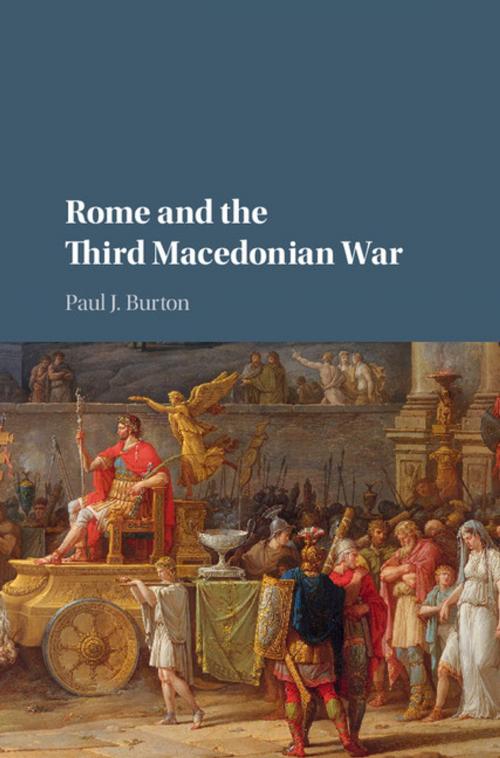| Author: | Paul J. Burton | ISBN: | 9781108547116 |
| Publisher: | Cambridge University Press | Publication: | October 12, 2017 |
| Imprint: | Cambridge University Press | Language: | English |
| Author: | Paul J. Burton |
| ISBN: | 9781108547116 |
| Publisher: | Cambridge University Press |
| Publication: | October 12, 2017 |
| Imprint: | Cambridge University Press |
| Language: | English |
This is the first full-length study of the final war between Rome and the ancient Macedonian monarchy and its last king, Perseus. The Roman victory at the Battle of Pydna in June 168 BC was followed by the abolition of the kingdom of Macedon - the cradle of Philip II, Alexander the Great, and the Antigonid monarchs who followed. The first historian of Rome's rise to world power, and a contemporary of the war, Polybius of Megalopolis, recognized the significance of these events in making Rome an almost global power beyond compare - a sole superpower, in other words. Yet Roman authority did not lack challenges from lesser states and insurgents in the decades that followed. The book's meticulous documentation, close analysis, and engagement in scholarly controversy will appeal to academics and students, while general readers will appreciate its brisk narrative style and pacing.
This is the first full-length study of the final war between Rome and the ancient Macedonian monarchy and its last king, Perseus. The Roman victory at the Battle of Pydna in June 168 BC was followed by the abolition of the kingdom of Macedon - the cradle of Philip II, Alexander the Great, and the Antigonid monarchs who followed. The first historian of Rome's rise to world power, and a contemporary of the war, Polybius of Megalopolis, recognized the significance of these events in making Rome an almost global power beyond compare - a sole superpower, in other words. Yet Roman authority did not lack challenges from lesser states and insurgents in the decades that followed. The book's meticulous documentation, close analysis, and engagement in scholarly controversy will appeal to academics and students, while general readers will appreciate its brisk narrative style and pacing.















